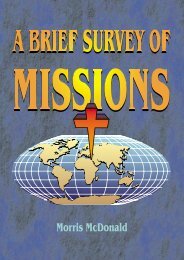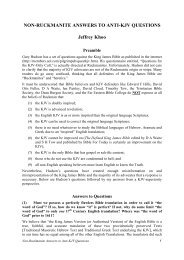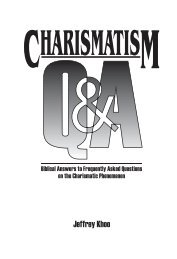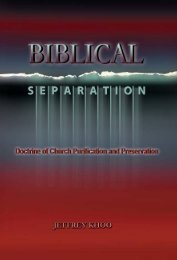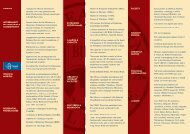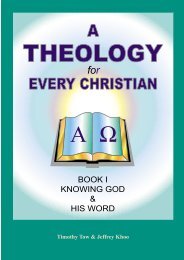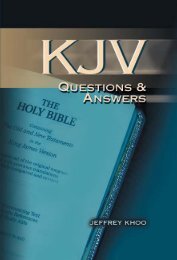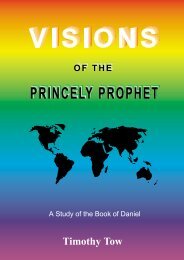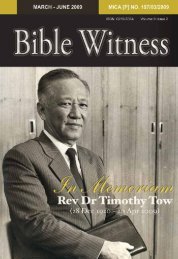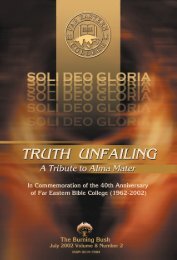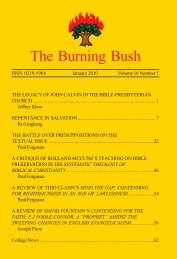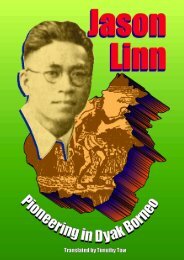Biblical Separation Defended - Far Eastern Bible College
Biblical Separation Defended - Far Eastern Bible College
Biblical Separation Defended - Far Eastern Bible College
- No tags were found...
Create successful ePaper yourself
Turn your PDF publications into a flip-book with our unique Google optimized e-Paper software.
allow their errors to obtain His approval, but warned the people publiclyand plainly against them. The cooperative evangelist on the other handdiffers completely from the Lord by his silence before error and hisfailure to warn the flock against the Christ-denying modernists. Hisapproval of the errorists has no parallel in Christ’s visits to the house ofworship in Israel.The fifth argument avers on the grounds of Christ engaging incontact and conversation with the religious rejects of His day that theconservative Christian preacher can engage in cooperation with thereligious rejects of this age. However, it was observed that Christ alwaysdealt with the errors of the religious rejects whom He went among, andnever gave the impression that He was cooperating with them or seekingtheir aid to accomplish His divine purposes. In contrast to this the neoevangelicalevangelist gives approval to and seeks aid from themodernists with whom he cooperates. Thus Christ’s conduct in this areacannot be used logically to justify the behavior of the orthodox preacherwho is sponsored by modernists, for Christ went to the rejects with newsof salvation, He did not come with them to others.The sixth argument declares that the Lord specifically forbadeChristians from sitting in judgment concerning which of those who wishto sponsor his campaigns are sound and which are not. Upon a study ofMatthew 7:1 in its context which commands, “Judge not, that ye be notjudged,” and an examination of the entire subject of “judging” as it isfound in the Scripture and as it has been understood by commentators, itwas discovered that the judging which Christ forbade was the censorioushyper-criticalness which characterized the hypocrites who saw the smallfaults of others but who overlooked their own unmercifulness. Thejudging of the doctrinal orthodoxy of others was not only seen not to beprohibited, but was observed to be the clear duty of a Christian in orderfor him to carry out the commands of Christ among which is theimperative to “Beware of false prophets” (Matt. 7:15).The seventh and eighth arguments concern the alleged stress of theLord’s ministry. The seventh affirms that the ministry of the Savioremphasized the evil of hypocrisy rather than the error of incorrecttheology. However, it was noted through a study of the New Testamentusage of “hypocrisy” that the Pharisees were the target of this94



